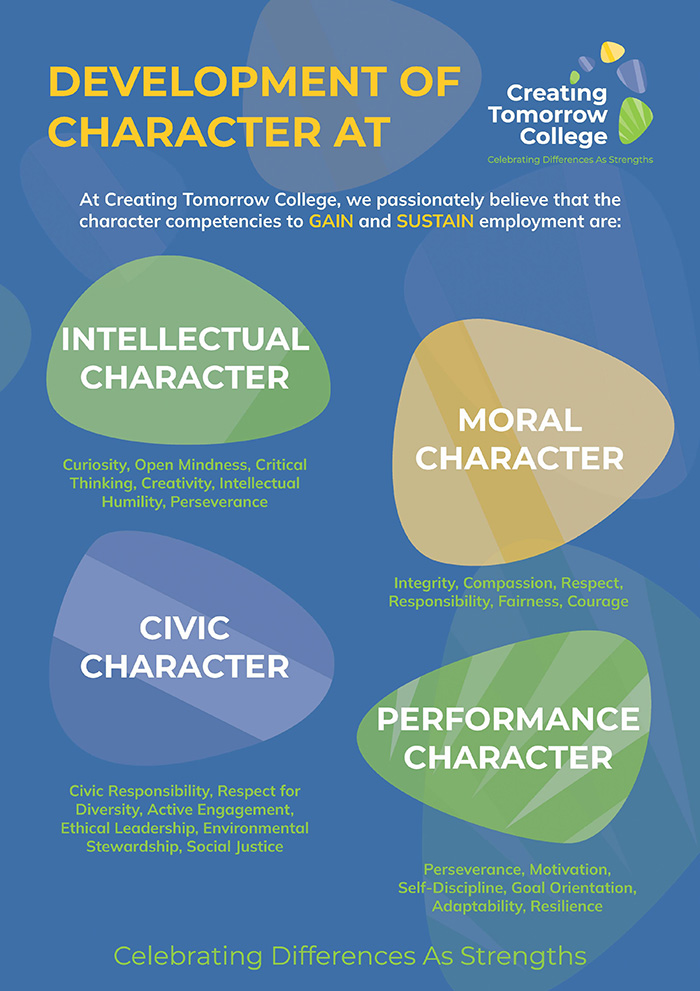Character Development

Creating Tomorrow College recognises that a structured programme of Character Development can provide:
Soft Skills Development
Young people with special educational needs may face challenges in traditional academic settings, but they often possess unique strengths in soft skills such as empathy, creativity, problem-solving, adaptability, and perseverance. These character traits are highly valued in the workplace and can contribute to their success in various job roles.
Enhanced Communication Skills
Effective communication is crucial in any work environment. By developing character traits like active listening, clarity in speech, and empathy, individuals with special educational needs can improve their ability to communicate with colleagues, clients, and supervisors, leading to better collaboration and overall job performance.
Self-confidence
The development of character helps in building self-confidence and a positive self-image. When individuals with special educational needs have confidence in their abilities and believe in themselves, they are more likely to pursue job opportunities and handle challenges with a growth mindset.
A Strong Work Ethic
Character development often includes qualities like responsibility, reliability, and punctuality. These attributes are essential in the workplace, as they contribute to a strong work ethic and the ability to meet deadlines and fulfil job duties consistently.
Development of Coping Strategies
Individuals with special educational needs may encounter various obstacles in the workplace, such as sensory sensitivities or difficulty with certain tasks. Character development can help them develop coping strategies and resilience to navigate these challenges effectively.
Enhanced Social Skills
Social skills are crucial for building positive relationships with colleagues, supervisors, and customers. By developing character traits like empathy and emotional intelligence, individuals with special educational needs can improve their social interactions, leading to better teamwork and cooperation.
Improved Problem-solving Abilities
The development of character often includes critical thinking and problem-solving skills. These abilities are valuable in the workplace, as employees are required to tackle various issues and find innovative solutions to meet organisational goals.
Promotion of Independence
Character development can empower individuals with special educational needs to become more independent, which is essential for succeeding in the workplace. As they gain confidence in their abilities, they may require less support, enabling them to take on more responsibilities and tasks.
Reduced Workplace Stigma
Emphasising character development helps challenge stereotypes and reduce the stigma associated with special educational needs in the workplace. When individuals with such needs to demonstrate their abilities and positive character traits, it fosters a more inclusive and supportive work environment.
Overall, character development is not only important for employability but also for leading fulfilling and meaningful lives for individuals with special educational needs. By focusing on their strengths and developing essential soft skills, they can find and sustain employment that aligns with their interests and abilities. Additionally, fostering an inclusive work environment that values diversity and character can lead to a more productive and harmonious workplace for everyone

